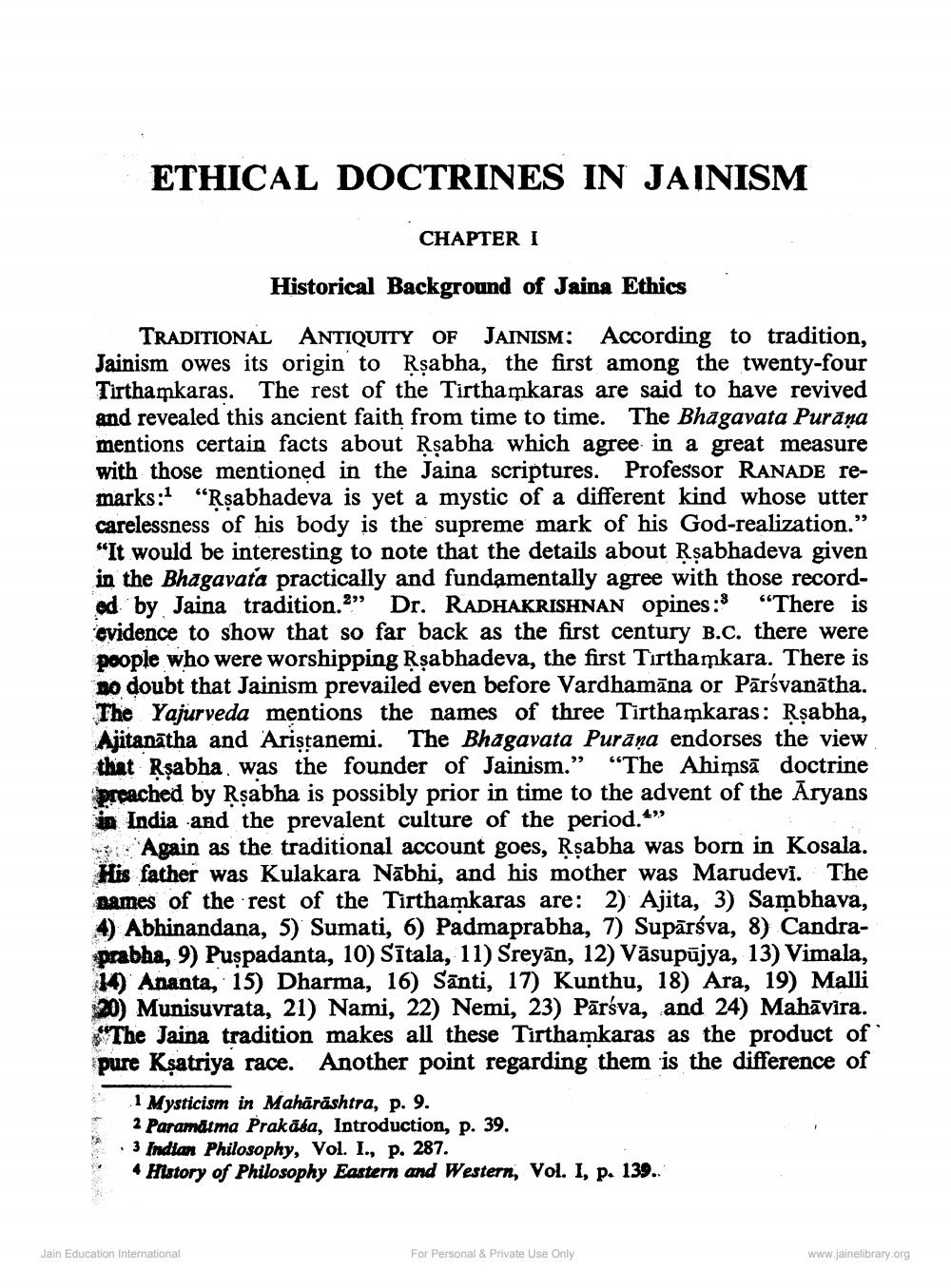________________
ETHICAL DOCTRINES IN JAINISM
CHAPTER I
Historical Background of Jaina Ethics
TRADITIONAL ANTIQUITY OF JAINISM; According to tradition, Jainism owes its origin to Rsabha, the first among the twenty-four Tirthamkaras. The rest of the Tirthamkaras are said to have revived and revealed this ancient faith from time to time. The Bhagavata Purana mentions certain facts about Rsabha which agree in a great measure with those mentioned in the Jaina scriptures. Professor RANADE remarks:1 "Rsabhadeva is yet a mystic of a different kind whose utter carelessness of his body is the supreme mark of his God-realization." "It would be interesting to note that the details about Rsabhadeva given in the Bhagavata practically and fundamentally agree with those recorded by Jaina tradition.2" Dr. RADHAKRISHNAN opines:8 "There is evidence to show that so far back as the first century B.C. there were poople who were worshipping Rşabhadeva, the first Tirthamkara. There is no doubt that Jainism prevailed even before Vardhamāna or Pārsvanātha. The Yajurveda mentions the names of three Tirthamkaras: Rşabha, Ajitanātha and Aristanemi. The Bhagavata Purāna endorses the view that Rsabha was the founder of Jainism.” “The Ahimsā doctrine preached by Rsabha is possibly prior in time to the advent of the Aryans in India and the prevalent culture of the period.”
Again as the traditional account goes, Rsabha was born in Kosala. His father was Kulakara Nābhi. and his mother was Marudevī. The names of the rest of the Tirthamkaras are: 2) Ajita, 3) Sambhava, 4) Abhinandana, 5) Sumati, 6) Padmaprabha, 7) Supārsva, 8) Candraprabha, 9) Puşpadanta, 10) Sītala, 11) Sreyān, 12) Vāsupūjya, 13) Vimala, 14) Ananta, 15) Dharma, 16) Santi, 17) Kunthu, 18) Ara, 19) Malli 20) Munisuvrata, 21) Nami, 22) Nemi, 23) Pārsva, and 24) Mahavira.
The Jaina tradition makes all these Tirthamkaras as the product of pure Ksatriya race. Another point regarding them is the difference of
1 Mysticism in Maharashtra, p. 9. 2 Paramåtma Prakāsa, Introduction, p. 39. 3 Indian Philosophy, Vol. I., p. 287. History of Philosophy Eastern and Western, Vol. I, p. 139.
Jain Education International
For Personal & Private Use Only
www.jainelibrary.org




